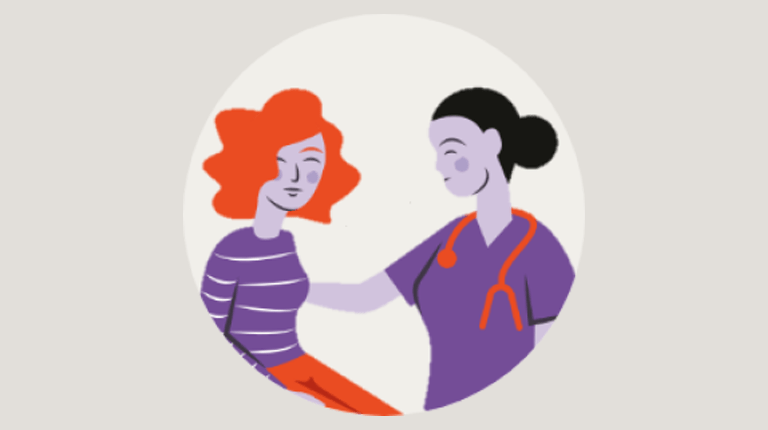
Considerations for special patient populations
Your female patients may experience HAE differently
Your female patients should also be aware that, in addition to common HAE attack triggers, there are additional moments in their life that can affect HAE attacks, such as ovulation, contraception use or menopause.2,3
Considerations for children
Guidelines recommend that restrictions of suspected triggers should be individualised, along with the use of prophylaxis where necessary, with the aim of avoiding any limitations in activities and lifestyle.1
Considerations for the elderly
There are no guideline recommendations specific to the treatment of adults ≥65 years old; however, several factors should be considered for older patients with HAE including:8
- Patients may be more likely to experience treatment-related adverse events due to physiological and pharmacokinetic changes as they age
- Older patients are more likely to have comorbidities, leading to polypharmacy and increasing the risk of drug-related disease and drug-to-drug interactions
- Venous access may prove challenging in patients with comorbidities such as type II diabetes or obesity
- Comorbidities may also affect the clinical course of HAE, especially in women
References
- Maurer M, Magerl M, Betschel S, Aberer W, Ansotegui IJ, Aygören-Pürsün E, et al. The international WAO/EAACI guideline for the management of hereditary angioedema-The 2021 revision and update. Allergy. 2022;77(7):1961–90.
- Bouillet L, Longhurst H, Boccon-Gibod I, Bork K, Bucher C, Bygum A, et al. Disease expression in women with hereditary angioedema. Am J Obstet Gynecol. 2008;199(5):484.e1-4.
- Caballero T, Farkas H, Bouillet L, Bowen T, Gompel A, Fagerberg C, et al. International consensus and practical guidelines on the gynecologic and obstetric management of female patients with hereditary angioedema caused by C1 inhibitor deficiency. J Allergy Clin Immunol. 2012;129(2):308-20.
- Hsu FI, Lumry W, Riedl M, Tachdjian R. Considerations in the management of hereditary angioedema due to C1-INH deficiency in women of childbearing age. Allergy, Asthma & Clinical Immunology. 2022;18(1):64.
- Banerji A, Riedl M. Managing the Female Patient with Hereditary Angioedema. Women's Health. 2016;12(3):351-61.
- Tachdjian R, Kaplan AP. A Comprehensive Management Approach in Pediatric and Adolescent Patients With Hereditary Angioedema. Clin Pediatr (Phila). 2023;62(9):973-80.
- Raasch J, Glaum MC, O'Connor M. The multifactorial impact of receiving a hereditary angioedema diagnosis. World Allergy Organ J. 2023;16(6):100792.
- Bernstein JA, Schwartz L, Yang W, Baker J, Anderson J, Farkas H, et al. Long-term safety and efficacy of subcutaneous C1-inhibitor in older patients with hereditary angioedema. Ann Allergy Asthma Immunol. 2020;125(3):334-40.e1.
DNK-AND-0001, 25/04/25




